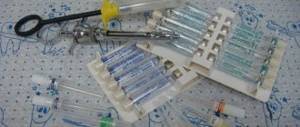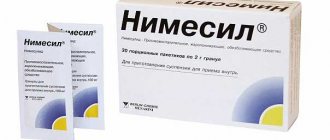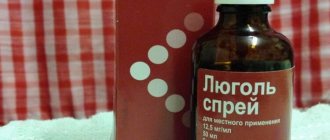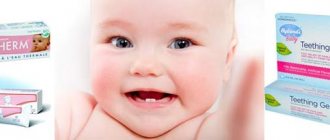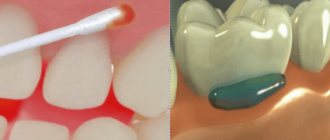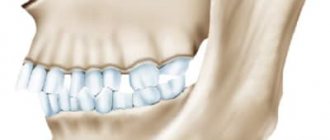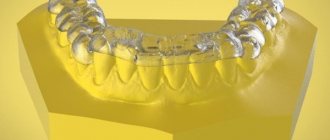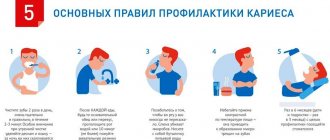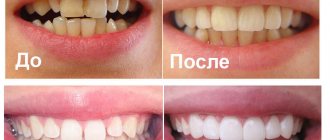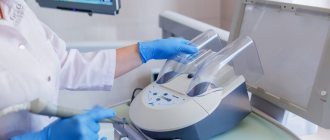Non-steroidal anti-inflammatory drugs are often used to relieve acute pain and eliminate symptoms of inflammation. Nimesil and its analogues are not first-line drugs and are recommended for use only if weaker drugs (paracetamol, diclofenac, ibuprofen) are ineffective.
According to the official instructions, Nimesil is a prescription medicine. Indications for use include moderate and severe pain of various origins (inflammatory, neurogenic, traumatic, postoperative), hyperthermia with chills, myalgia, dysmenorrhea.
Nimesil is sold in the form of a fast-dissolving granular powder, which before use must be dissolved in 150 ml of clean water to obtain an oral solution. This form of release provides the fastest possible therapeutic effect. Each sachet contains 100 mg of nimesulide, an NSAID that reduces the synthesis of inflammatory mediators such as prostaglandins, leukotrienes, and arachidonic acid. Thanks to this, it is possible to eliminate pain and reduce body temperature.
This powder is prohibited for use in the presence of such concomitant diseases as acute and chronic gastritis, duodenitis, duodenal and gastric ulcers, ulcerative colitis, aspirin-induced asthma, bleeding disorders, severe hepatic, hepatic and heart failure.
The official instructions for Nimesil provided by the manufacturer indicate that febrile fever and signs of influenza are contraindications to the use of this drug. Age limit – 12 years. The most common treatment regimen is 1 sachet as needed.
Cost of Nimesil and its analogues
Nimesil is an imported drug; it is produced by several pharmaceutical companies - Laboratorios Menarini (Italy) and Fine Foods & Pharmaceutical (Spain). This is one of the first nimesulide-based drugs registered in Europe. At the moment, a large number of generics have appeared on the market, which have the same clinical effect, but have a lower cost.
| Region | The drug and its release form, price in rubles | ||||
| Nimesil in sachet No. 30 | Aponil, 20 tablets of 100 mg | Nimika 0.1 No. 20 | Nise, bags, 9 pcs. | Nemulex, granules in bags, 30 pcs. | |
| Moscow and region | 740-765 | 180-200 | 210-221 | 245-260 | 490-520 |
| Saint Petersburg | 721-796 | 175-202 | 198-216 | 230-256 | 510-521 |
| Irpen | 699-754 | 181-221 | 195-206 | 236-260 | 489-560 |
| Volgograd | 702-787 | 169-198 | 199-231 | 220-260 | 512-536 |
pharmachologic effect
Manufacturer: Berlin-Chemie, Germany;
Laboratorios Menarini, Spain Release form: granules
Active ingredient: nimesulide
Synonyms: Nise, Nimika, Nemulex, Nimesulid-Teva, Nimulid, Nimesan
The medication refers to drugs that eliminate the inflammatory process in joints, tissues and the skeletal system.
Nimesil has the following pharmacological properties:
- analgesic;
- anti-inflammatory;
- antirheumatic;
- antipyretic.
Cheap analogues of Nimesil in tablets
Thanks to its special release form, Nimesil has the fastest possible analgesic effect. In cases where it is not possible to prepare a solution (for example, on the road), it is more convenient to use similar drugs in tablets. They cost a little less than the original drug, but are also effective.
Nimulid
The drug is made in India and is produced by Panacea Biotek. It is most often used for the treatment of inflammatory diseases of the musculoskeletal system (myositis, arthritis, arthrosis), helps to quickly eliminate pain of various origins, including after surgery and injuries. A special feature is the presence of not only tablets for oral administration, but also a sublingual form, which is intended for resorption in the oral cavity. For children over 6 years of age, Nimulid is used in the form of a suspension. The maximum daily dose for adults is 200 mg, that is, 2 tablets; for children it is calculated individually based on the formula 5 mg/kg body weight. The duration of action of the drug is 5-6 hours.
It is a second-line drug, since in addition to a good analgesic effect, it can cause adverse reactions, has a toxic effect on the liver, and can provoke bleeding or a hypertensive crisis.
Aponil
Tablets registered in our country as an antirheumatic and non-steroidal anti-inflammatory drug. Produced by the European company Mekodemi LTD (Cyprus) in the form of tablets with a single dosage - 0.1 g of nimesulide. Each cardboard package contains 2 plastic cellular blisters of 10 tablets. Lactose monohydrate, sodium docusate, hydrogenated vegetable oil (palm or coconut), corn and potato starch, and microcellulose are used as auxiliary components in the production of Aponil. According to the recommendations of specialized associations for stepwise pain therapy, Aponil is used for relieved acute pain syndrome when other analgesics are ineffective. This medicine helps to quickly eliminate myalgia, arthralgia, headache and toothache.
The drug should not be used by children, pregnant or lactating women. Contraindications include alcoholism, aspirin-induced asthma, impaired detoxification function of the liver, chronic kidney disease, exacerbation of inflammatory and ulcerative diseases of the gastrointestinal tract.
Most often the drug is used symptomatically, but if long-term pain relief is needed, 1 tablet is prescribed 2 times a day after meals. The duration of treatment is determined individually, taking into account the indications.
Nimika
A non-narcotic analgesic with anti-inflammatory and analgesic properties. Indicated for toothache, lumbodynia, neuritis, injuries. Can be used to relieve pain during surgical procedures in dentistry, as well as after surgical interventions.
It is produced in India by the pharmaceutical company Ipka in tablet form with a dosage of 0.05 and 0.1 mg of nimesulide. According to the instructions, before taking, you need to dissolve 1 or 2 tablets in a spoon of water. For adults, Nimika is prescribed 100 mg 2 times a day. For children, an oral suspension is used (10 mg of nimesulide in 1 ml), a single dose is calculated taking into account weight and age, on average 2 mg/kg.
Contraindications: allergy to acetylsalicylic acid and other NSAIDs, increased bleeding, acute heart failure, renal and liver failure.
Nimesulid-Teva
A modern analgesic whose chemical structure is a sulfonanilide. Inhibits the synthesis of prostaglandins, arachidonic acid, leukotrienes, thereby eliminating signs of inflammation such as pain, swelling, and fever. Quickly normalizes well-being in infectious and inflammatory diseases that are accompanied by intoxication and fever, and also eliminates neurogenic and traumatic pain.
Nimesulide-Teva affects the pharmacodynamic properties of a large number of drugs and is therefore not recommended for routine use. The drug is prohibited for use by pregnant and lactating women and children under 12 years of age. To eliminate pain or hyperthermia, in most cases, a single dose of the tablet is sufficient.
Nimesan
Manufactured in India by Shreya. Packages of 20 tablets at a dosage of 100 mg are available for sale. Purified microcellulose, potato starch, sodium stearate, and lactose are used as auxiliary substances in production. Nimesan tablets are quickly absorbed from the gastrointestinal tract, the effect is noticeable 15-20 minutes after administration and lasts up to 6 hours. Indications for use: severe pain that cannot be relieved by other NSAIDs.
Nimesan is not recommended for long-term treatment. If the dosage is exceeded, as well as frequent use of this medicine, undesirable reactions may occur - dizziness, sleep disturbances, nausea, vomiting, stool upset, abdominal pain. The drug is hepatotoxic; in case of liver failure, dose adjustment is necessary. Age limit – 12 years.
During pregnancy and lactation, taking Nimesan can have negative effects on the fetus and child, so you should give preference to safer drugs.
Nise or ibuprofen: which is better and what is the difference (differences in composition, reviews from doctors)
Nonsteroidal anti-inflammatory drugs (NSAIDs) are used by specialists in all areas of medicine to relieve pain and inflammation. Only a doctor can prescribe Nise or Ibuprofen, choosing the drug that will cause the least harm to the patient’s health. The choice of remedy will depend on the age of the patient and the nature of the disease.
Only a doctor can prescribe Nise or Ibuprofen, choosing the drug that will cause the least harm to the patient’s health.
Characteristics of Nise
The active ingredient of the drug is nimesulide. Auxiliary:
- microcrystalline cellulose;
- corn starch;
- calcium hydrogen phosphate;
- sodium starch glycolate;
- magnesium stearate;
- anhydrous colloidal silicon and purified talc.
The active ingredient of the drug is nimesulide.
Nise is produced in the form:
- tablets;
- gel;
- suspensions for children.
Inexpensive substitutes for Nimesil powder
If you need to quickly eliminate pain or fever, it is rational to use the drug in powder. This ensures high bioavailability of the drug and the fastest possible clinical effect. Sachets containing a single dose can be purchased individually at pharmacies.
Nise
Belongs to the group of non-steroidal anti-inflammatory drugs. The active ingredient is nimesulide. The chemical properties are sulfonanilide, and the mechanism is associated with blocking type 2 cyclooxygenase receptors. Indicated for the treatment of lumbago, gout attacks, arthritis of various etiologies. The drug has a fairly large number of side effects, which is associated with high hepatotoxicity, therefore it is not recommended in routine practice and is a second-line therapy.
Produced by the pharmaceutical company Dr. Reddis, India. A special feature is the presence of several forms of release:
- Sachets of granulated powder for preparing a solution, 2g;
- Enteric tablets;
- Oral suspension.
The drug can be used by children over 7 years of age with strict adherence to the instructions and constant medical supervision.
Nemulex
The drug is packaged in the Russian Federation by Sotex PharmFirma, which carries out control before sale. Raw materials based on nimesulide are produced in Romania at the Rompharm Company plant.
Release form: dry powder in the form of granules. After dissolution in water, a homogeneous suspension with a pleasant orange taste and smell is formed. The drug is used as symptomatic treatment of diseases that are accompanied by severe pain - osteochondrosis, arthrosis and arthritis, bursitis, myalgia, toothache and headache, radicular syndrome. It is prohibited to use the drug during pregnancy and breastfeeding.
Possible adverse reactions include allergies, urticaria, dizziness, drowsiness, depressed emotional state, nausea, abdominal pain.
Nimid
An anesthetic drug based on nimesulide, which is available in sachets containing 2 g of instant powder. It belongs to non-narcotic analgesics of category B, sold by prescription.
Recommended as a second-line anti-inflammatory and analgesic agent. Effectively eliminates pain of any etiology, helps reduce signs of inflammation during infection or injury.
Produced in India by the pharmaceutical company Kusum in several dosage forms that can be combined to achieve maximum effect:
- powder for suspension;
- pills;
- gel for external use.
Analogues with a minimum of side effects
When choosing an NSAID, you need to take into account a large number of factors - the severity of pathological symptoms, age, and the presence of concomitant diseases. There are no medications without side effects, so it is very important to follow the instructions, choose the safest medications and use the minimum effective doses. You can replace Nimesil with over-the-counter analgesics, which have fewer unwanted effects and contraindications.
Ibuprofen
The international nonproprietary name is similar to the active ingredient - Ibuprofenum. According to its chemical structure, it is a derivative of propionic acid, which has a blocking effect on the COX enzyme and reduces the production of inflammatory mediators. The drug also helps eliminate fever and chills. Can be used during pregnancy and lactation as prescribed by a doctor. Special forms of ibuprofen have been developed in the form of syrup and suspension, which allows it to be prescribed to children after 3 months.
The most popular tablets from these manufacturers:
- Darnitsa, Ukraine;
- Borisov ZMP, Belarus;
- Borshchagovsky Chemical Plant, Ukraine;
- Akrikhin, Russian Federation;
- Hemofarm, Serbia;
- Tatchimpharmpreparaty, Russia.
Tablets contain 100, 200 or 400 mg of ibuprofen. The drug can be used for 2-3 weeks. Dosage regimen: 1 tablet 2 times a day, depending on the clinical situation.
Nalgesin
A modern analgesic-antipyretic containing 275 mg of naproxen in the form of sodium salt. The mechanism of action is associated with inhibition of the activity of enzymes involved in the synthesis of inflammatory mediators (prostaglandins and leukotrienes). This medicine also has antithrombotic properties. The drug has high bioavailability and is well tolerated by most patients.
According to the instructions, Naproxen is indicated for the treatment of radiculitis, ischalgia, radicular neuralgia, headache, muscle, joint and menstrual pain.
Contraindications:
- pregnancy and lactation;
- acute inflammatory diseases of the gastrointestinal tract (gastritis, duodenitis, peptic ulcer);
- intolerance to one of the components;
- bleeding disorders.
Undesirable effects when taking Nalgesin are associated with the individual characteristics of the body or an incorrectly selected dosage. They may manifest as a feeling of drowsiness and depression, abdominal discomfort, and dizziness.
The drug is produced in Slovenia by the company KRKA. A prescription is not required to purchase Nalgesin tablets.
Ketonal
The main active ingredient is ketoprofen. It is a representative of the latest generation of NSAIDs. In addition to blocking the action of all types of COX, it has the ability to inhibit the enzyme lipoxygenase. As a result, the concentration of bradykinin, prostaglandin and other inflammatory mediators decreases.
Indications for use:
- hyperthermia;
- infectious and inflammatory diseases of various localizations;
- acute and chronic pain.
The drug is contraindicated in cases of aspirin intolerance, bronchial asthma, gastric and duodenal ulcers, and increased bleeding.
Ketonal is available in capsules and tablets of 25, 150 and 200 mg. The presence of an injection form and a variety of dosages allows you to select the minimum effective dose, method and frequency of use of the drug. Ketonal can be used either as symptomatic therapy once or in a course of 2-3 weeks. Manufacturer: Lek DD, Slovenia.
Using powder after wisdom tooth removal
Removal of third molars (wisdom teeth, numbers of eights) in comparison with extraction operations of other types of teeth is the most complex medical procedure. Quite often, this procedure is complicated by the anatomical features of the causative dental unit (deformed roots, transverse position in the gum, and others).
Since wisdom tooth removal is a highly traumatic operation, the duration of the recovery period after it is increased. Moreover, in addition to pain in the postoperative period, all patients experience the following pathological symptoms:
- swelling of the soft tissues adjacent to the site of medical intervention;
- restricted mouth opening;
- temporary numbness of the jaw caused by injury to the nerve endings located in this area.
Taking Nimesil after wisdom tooth removal helps reduce the severity of pain, accelerate the healing process, and reduce the intensity of accompanying symptoms. Due to the ability of nimesulide to inhibit the development of the inflammatory process, postoperative edema in the area of medical intervention is small in size and persists for a short time.
The rules for taking Nimesil in case of wisdom tooth extraction are similar to the conditions for using this drug after extraction of other types of teeth. The only addition to the general recommendations is that the course use of this analgesic can last for two weeks.
